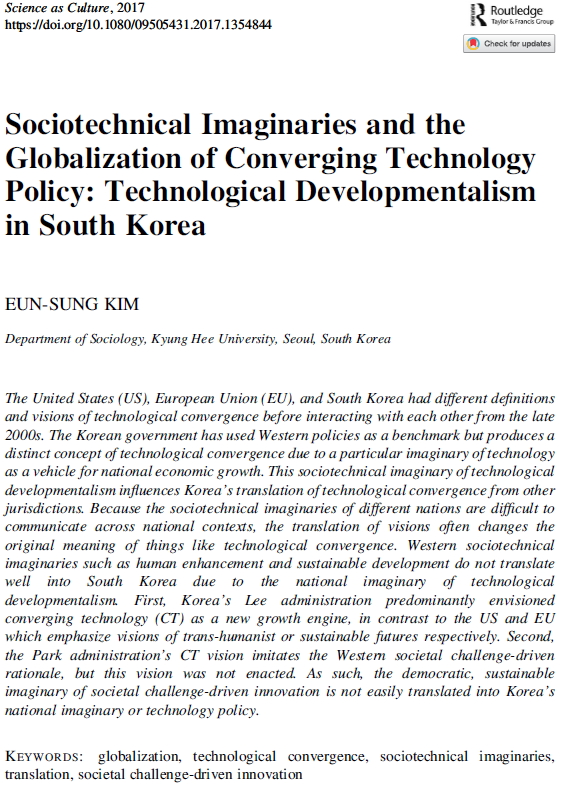
| Title |
: Sociotechnical Imaginaries and the Globalization of Converging Technology Policy: Technological Developmentalism in South Korea |
| Date |
: 2017.08 |
| Journal title |
: Science as Culture |
| Author |
: Kim, Eun-sung |
| Contact us |
: csts@khu.ac.kr |
| Abstract |
: The United States (US), European Union (EU), and South Korea had different definitions and visions of technological convergence before interacting with each other from the late 2000s. The Korean government has used Western policies as a benchmark but produces a distinct concept of technological convergence due to a particular imaginary of technology as a vehicle for national economic growth. This sociotechnical imaginary of technological developmentalism influences Korea’s translation of technological convergence from other jurisdictions. Because the sociotechnical imaginaries of different nations are difficult to communicate across national contexts, the translation of visions often changes the original meaning of things like technological convergence. Western sociotechnical imaginaries such as human enhancement and sustainable development do not translate well into South Korea due to the national imaginary of technological developmentalism. First, Korea’s Lee administration predominantly envisioned converging technology (CT) as a new growth engine, in contrast to the US and EU which emphasize visions of trans-humanist or sustainable futures respectively. Second, the Park administration’s CT vision imitates the Western societal challenge-driven rationale, but this vision was not enacted. As such, the democratic, sustainable imaginary of societal challenge-driven innovation is not easily translated into Korea’s national imaginary or technology policy. |
|

